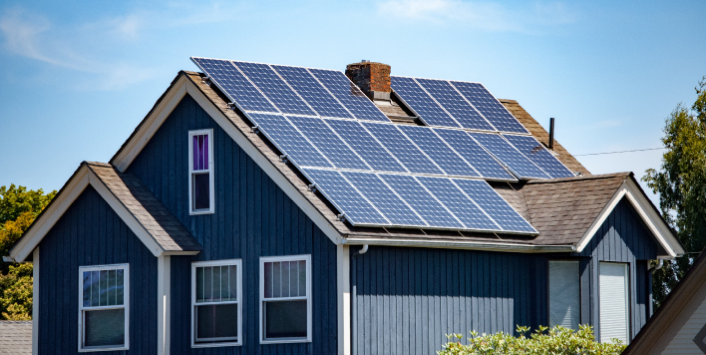How 'water batteries' could make solar power more practical at scale

As I was wandering around the grocery store chatting with my friend Micah the other day, she started explaining this really interesting concept about "water batteries"; and how they could help the adoption of solar technology.
One of the biggest problems with solar reliance is the fact that it's hard to store the energy. In 2015 Tesla introduced a home battery solution which could be paired with a solar installation to store energy captured during the day for use at night.
The cost of the batteries and installation creeps into the $10k~15k range which is pretty expensive. You'd also have to pair it with an existing solar installation, which comes in the thousands of dollars range as well. This is cost prohibitive for many families who might be inclined to adopt renewable energy on their own.
The most practical solution would be to leverage economies of scale and allow PUDs or power companies to purchase these solar solutions en masse. Instead of individual house holds installing and maintaining their own personal installations, a central provider could maintain a much larger installation.
There's just one problem with this, what happens at night?
Well, when the solar panels don't receive the sunlight they can't generate the current to provide power. If your household relied 100% on solar without any form of storage, you'd simply lose power until the sunlight came back. That's why many of today's solar installations supplement other forms of energy.
In theory, if you could just build a battery with enough capacity and power you'd be set! The problem is that the technology isn't ready for us to completely switch to things like solar.
This is where the water battery comes in.
The water battery isn't a literal battery in the sense that it directly stores power like a car battery or an energizer AA. The principle is that if your unreliable renewable resource (solar or wind) can produce excess power than what is being consumed, you can take that energy and store it.
If you're familiar with hydroelectric energy, where flowing water moves a turbine to create energy, the principle of a water battery is very similar. You essentially create a closed water circuit with a higher and lower reservoir. During the day, you use the excess power generated to move water up a grade for storage; and then at night you generate power by letting that water flow back down.
If my high school science serves me right, you're converting one type of energy, storing the potential energy and then converting it to kinetic energy as the water flows.
I am personally hoping that this is something that scientists and engineers can rally around this to see how feasible the implementation would be across the country to end our reliance on non-renewable and polluting energy sources.
Cover image from Green Mountain Energy.